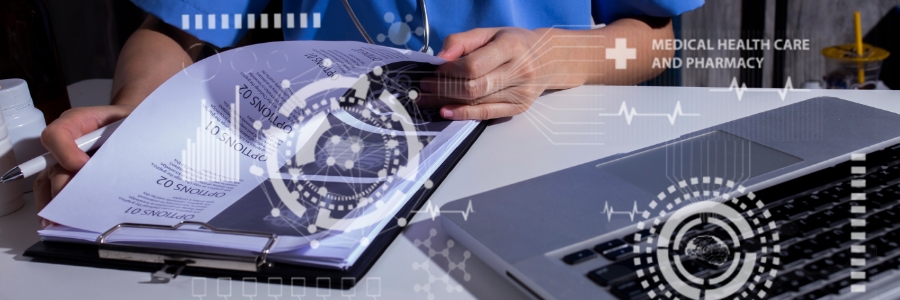Safeguarding protected health information (PHI) is vital for healthcare institutions worldwide. PHI, which encompasses a broad spectrum of data from medical records to financial information related to healthcare, remains a prime target for cybercriminals.
TOSS C3
The verdict on EHRs: Is the shift from paper records in healthcare worth it?

In recent years, there has been a significant push toward digitizing healthcare records. The traditional method of using paper charts and files to store patient information is quickly becoming outdated, with more and more healthcare providers making the switch to electronic health records (EHRs). But is this shift worth it? Are EHRs truly more valuable than paper records? Let’s take a closer look.
Data-driven interventions: Preventing readmissions before they happen
How is telemedicine revolutionizing healthcare?

The worlds of technology and healthcare are colliding like never before, and telemedicine is leading the charge. This article breaks down how telemedicine is changing the game by combining modern tech with traditional doctor visits — imagine virtual checkups, remote monitoring, and doctors who can talk to each other easily, all through a screen.
Choosing the right EHR hardware for your practice

The right electronic health record (EHR) hardware can make your practice more efficient, productive, and secure. It can streamline your workflow, improve patient care, and ensure compliance with the latest regulatory requirements. However, with so many options out there, how do you pick the right hardware for your practice?
This guide will delve into the pros and cons of various hardware options, empowering you to make an informed decision for your organization.
HIPAA and IT: The 4 key factors

There is a reason medical records are regarded as confidential. In addition to general respect for privacy, their illicit disclosure has caused social stigma and job discrimination for patients. In order to protect patient privacy, the Health Insurance Portability and Accountability Act (HIPAA) was enacted, granting patients final say over access to their health records.
The role of mobile device management in healthcare

Mobile devices have become indispensable tools in the healthcare industry. Doctors, nurses, and other healthcare workers use mobile devices to access patient records, order medications, and communicate with colleagues. This increased use of mobile devices has created new challenges for healthcare organizations, including in areas of security and compliance.
AI is changing the healthcare industry
How technology is revolutionizing healthcare
Selecting the perfect health app or wearable for your needs

The rise of health apps and wearable tech has empowered individuals to take an active role in monitoring and improving their health. These devices and applications offer a range of features that can track various aspects of your well-being. However, not all health apps and wearable tech are created equal, and it’s crucial to consider certain factors before making a selection.




